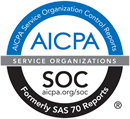Contact Us
- Call Now:(01)773-455-6676
- Sales Email:sales@dedicatedhosting4u.com
- Support Email:support@dedicatedhosting4u.com
- Billing Email:billing@dedicatedhosting4u.com
Close Support
Reliable Web Hosting Provider For Setting Up Your Website
Reliable Web Hosting Provider For Setting Up Your Website
Why web hosting provider reliability is much important?
Web hosting is required for taking your business to the online world. A neatly designed and maintained website turns out to be a good identity of an enterprise. Now to make this happen, you need a reliable web hosting provider who can give you instant support for all web related demands. Finding a reliable hosting company is not much of a challenging task these days. This can be attributed to the quality of services that the hosting companies around the globe are providing. Whatsoever you need to do a bit of research and analysis before you go for a hosting plan. Going for a dedicated solution will be greatly beneficial since you get real “hardware” for different server mechanisms. If you are in a thought to go with the virtual server systems, it is quite obvious that they will lack in performance.
How to find a web hosting provider and perfect suitable solution?
There are many aspects that you have to keep in consideration before going with a hosting service provider. A potentially sound and reliable web hosting provider will provide many hosting packages to choose from. You have to analyse those packages meticulously to find out the right one for you. It would be better to choose a plan that provides great performance while staying highly cost effective. Take a look at the past works of the company so that you can know about the existing clients of the provider. A wise decision would be to use the best dedicated solution available in the market.
Should I care for something else before opting dedicated solutions?
Yes, before you make the big leap in availing the services from a reliable web hosting provider, also make sure that:
• The vendor has specific terms and conditions on the hosting.
• If they have hidden charges, chances are that you will end up huge expenses for maintaining as well as deploying these servers.
• For very high performance, you may go with the dedicated servers available in your region.
The good thing now is that dedicated servers are highly reliable and you won’t find any lag while working with these. Obviously, these are the machines that can take your business to the next level.
13 Ways to Check the Reliability of a Website
There are hundreds of websites chock-full of material that is erroneous, untrustworthy, or just plain wacky for every credible one. Such sites may be a minefield of potential hazards for the naïve, unskilled journalist or researcher.
With that in mind, here are eight techniques to determine whether or not a website is trustworthy.
- Look for well-known institutions.
There are a lot of websites on the internet that were created five minutes ago. What you want are sites that are affiliated with reputable institutions that have a long track record of trustworthiness and honesty.
- Seek out sites that are knowledgeable.
If you broke your leg, you wouldn’t go to an auto mechanic, and you wouldn’t go to the hospital to have your car fixed. This is a self-evident point: Look for websites that focus on the information you’re looking for. If you’re writing a piece on a flu outbreak, go to medical websites like the Centers for Disease Control and Prevention.
- Stay away from commercial sites.
Companies and businesses, whose websites frequently finish in.com, are almost always attempting to sell you something. And if they’re attempting to sell you anything, the information they provide you will almost certainly be biased toward their product. That isn’t to argue that business websites should be completely avoided. But be cautious.
- Keep an eye out for bias.
Politics is a hot topic among journalists, and there is a slew of political websites to choose from. However, many of them are administered by organizations that prefer one political party or philosophy over another. A liberal politician is unlikely to be covered fairly by a conservative website, and vice versa. Avoid sites that have a political agenda and instead seek for sites that are non-partisan.
- Double-check the date.
As a reporter, you need the most up-to-date information possible, therefore if a website appears to be outdated, you should generally avoid it. Look for a “last updated” date on the page or site to double-check.
- Consider the Site’s Appearance
If a website appears to be badly designed and unsophisticated, it was most likely produced by amateurs. Another red flag is sloppy writing. Keep your distance. But keep in mind that just because a website is well-designed doesn’t guarantee it’s trustworthy.
- Stay away from anonymous authors.
Articles or studies with named authors are more credible than anonymously generated ones, yet this is not always the case. It makes sense: if someone is prepared to sign their name to something they’ve written, they’re probably confident in the content. If you know the author’s name, you may always Google them to double-check their credentials.
- Examine the Websites
Websites with a good reputation frequently link to one another. Conduct a link-specific Google search to see whether other websites connect to the site you’re examining. Replace “[WEBSITE]” with the domain of the site you’re looking for in the Google search field:
link:http://www. [WEBSITE].com
The search results will show you which websites have links to the one you’re looking at. It’s a positive indicator if a lot of sites connect to your site and those sites appear to be trustworthy.
- A Trustworthy Domain
That domain name, or web address, will be the first thing your visitors see when they arrive at your website. Your domain name should be as memorable as possible.
Here are a few pointers on how to go about it:
- Incorporate your primary keyword into your domain name. If you offer garments, for example, a domain like www.marksclothing.com might be a suitable fit. It would make it crystal apparent to a new visitor what your website is about right away. It’s also branded with your company’s name.
- Select a reputable domain extension. While there are a lot of crazy extensions to pick from, it’s best to stick to the basics like.com, store, and.io.
- Check to see if your domain name isn’t a rip-off. Make sure a domain name isn’t already trademarked before utilizing it. If this is the case, you risk being sued and having your website shut down. Even if you don’t get caught, clients will notice that you’re using a cloned identity, making you appear less trustworthy.
- SSL Certificate
It is critical to have an SSL certificate installed on your website. This is due to three factors:
- It establishes a secure connection between your hosting server and the web browser of your visitors. This implies that any data transmission will be entirely secure.
- It improves the credibility of your website. After you’ve installed the SSL certificate, internet browsers will display a green padlock next to your website’s address, indicating that it’s safe.
- It helps to increase conversion rates. Your visitors’ browsers will identify your website as “not secure” if you don’t install an SSL certificate. That doesn’t look good, even if there’s no security concern. It will affect how many sales you get on your website, plus it will affect your Google ranking.
- Appropriate Ad Positioning
Ads are a terrific method to monetize your website, which is why it’s easy to overdo it.
It’s not a good idea.
While you may earn some money from advertisements, too many adverts on your site may drive people away, causing you to lose even more money.
This is a very typical issue for website owners who have chosen to utilise pop-up adverts. Those advertising might slow down browsers and irritate your visitors to the point where they abandon your site.
If you don’t want this to happen, place adverts on your website in a conservative manner that demonstrates your respect for your users. Here are some pointers on how to go about it:
- Less is more in this case. The more advertisements you have on your website, the less room there will be for the content that your visitors came to see. Instead of putting 10 advertising on your site and frightening away your visitors, put two or three adverts on your site.
As a result, your adverts will receive the appropriate amount of attention in comparison to your content, and your visitors will not be irritated. That’s a win-win situation!
- Make sure your advertising doesn’t blend in. Ads on numerous websites resemble the site’s thumbnails or headlines. This confusion is sometimes purposefully manufactured, so visitors don’t know whether they’re clicking on a content link or an ad.
Nobody like being duped, and if this occurs to your visitors, they will never return to your site. Use a different color or a larger positioning to visually separate your adverts from your content.
- Make sure your adverts are clearly labelled as such. Ads on your website should be labelled as such. If you have a video or a blog post on your website, for example, make it plain that it is a promotional video or a sponsored article.
With these three suggestions, you’ll be able to design a website that earns money from advertisements while respecting the privacy of your visitors.
- Professional Web Design
Most consumers choose a site that is created to be beautiful over one that is built for simplicity, according to Adobe.
This means that a beautiful design is important, and you should strive for it for your website.
After all, the design of your website is the first impression your company makes. Bad colour combinations, incomprehensible writing, and too many adverts are just a few factors that might make a visitor’s impression of your site bad.
Here are a few things to consider in order to improve the aesthetics of your website:
- Images and graphics that are one of a kind. Stock pictures are the fastest way to instil distrust. As a result, on your website, you should always utilise high-quality, unique photographs and graphics.
- CTAs with a lot of clout. Every page of your website should have one major CTA (call to action), which is a cue to do a specific action on your site. For example, if you want a visitor to browse your items or sign up for a free trial, make it easy for them to do so by placing a clear CTA on your website.
- Layout is appealing. It’s not meant to be a wall of text on your website. It should instead be a multimodal experience with photographs, video, and images. Including these components on your website will enhance its functionality and make it more enjoyable to use.
- Social Proof for Credibility
People are notorious for being distrustful of new websites and unwilling to utilise them. They’ll feel considerably more at ease if you offer them proof that your site has been approved by other users.
As a result, you should provide social proof to your website users. It gives consumers more confidence in your products or services since they can see that others have tried them and had a favorable experience with them.
But how do you provide your guests social proof?
The three primary methods are as follows:
- Feature your products or services on reputable websites. You might be able to have your firm included in a notable source by contacting editors of prominent media publications or employing a good writer.
Not only will this give you with a great marketing opportunity, but you’ll also be able to brag on your website about how your company has been featured on a prominent website.
Post testimonials and success stories from customers. Posting actual customer reviews or success stories on your website is another great strategy. Such details will go a long way toward persuading prospective visitors that your website is reliable.
- Make a testimonials page. User reviews are not the same as testimonials. They’re written by your top consumers at your request, so you’ll have verifiable proof that your items or services are well-liked.
False testimonials are easy to recognize and can harm your site’s credibility, so be sure that every remark your consumers make is authentic and honest.
It’s fine if you can’t get your product or service listed on a well-known website. Simply posting a few client testimonials and customer reviews will enough. Any of those marketing methods that you implement successfully will make your website look much more trustworthy, which is exactly what you want.
Factors that Affect the Credibility of Your Website
- Reliability (Over Time)
A visitor’s faith in you will increase as long as you remain constant. It builds a really excellent reputation with your consumers if you perform all of the things I’ve mentioned in this post on a regular basis.
- No Requirements That Aren’t Necessary
Customers lose trust when you make them register before they can leave a remark, start a live chat, or buy your product.
When you ask for a customer’s phone number when you simply need their name and email address, you are increasing resistance and lowering trust.
- Include a list of frequently asked questions (FAQs).
Customers have concerns and queries. An FAQ is a convenient approach to provide straightforward answers to some of your customers’ inquiries.
Organizations frequently approach their FAQs as a low-key sales page. It’s far better to be helpful, open, and honest with every single one of your consumers.
- Keep jargon to a minimum.
Jargon isn’t a smart idea if you’re marketing to a general audience. People are more inclined to trust a tangible assertion than an abstract one, according to research. For specialist audiences, use specialized vocabulary.
- Maintaining an Up-to-Date Blog
Creating content on a regular basis shows visitors that your website is active and well-maintained. It also encourages people to return regularly, constantly on the lookout for new information that will assist them.
- Expertise that may be put to good use
Your website visitors are always on the search for expert-level information that answers their issues, helps them achieve their objectives, or just entertains them. They’re looking for expert material that’s new, unexpected, and comprehensive.
- Advertising is kept to a minimum
People despise advertisements. They despise them because they are obnoxious and intrusive, and they are everywhere.
It’s a good idea to keep your advertising on your site to a minimum so that it doesn’t detract from or disrupt your visitors’ experience.
- Friendly and helpful customer service
Great customer service improves your website’s trustworthiness by providing a nice experience for visitors. Visitors to your website will see that your organization is competent and efficient because of the kind, educated help staff. To make it easier for your audience, consider including a live chat option.
- Make References to Your Sources
Giving references boosts your credibility. Customers will check your sources less and less as their faith in you grows, but only if you have a track record of mentioning your sources and giving proof to back up any statements you make.
- Incorporate customer feedback
Customer reviews are similar to testimonials in that they allow customers to express themselves. Reviews go a step further by allowing consumers, businesses, and the general public to converse.
When reviews are good, they can drastically increase credibility (and sales). Negative reviews, on the other hand, have some worth, so don’t dismiss one.




